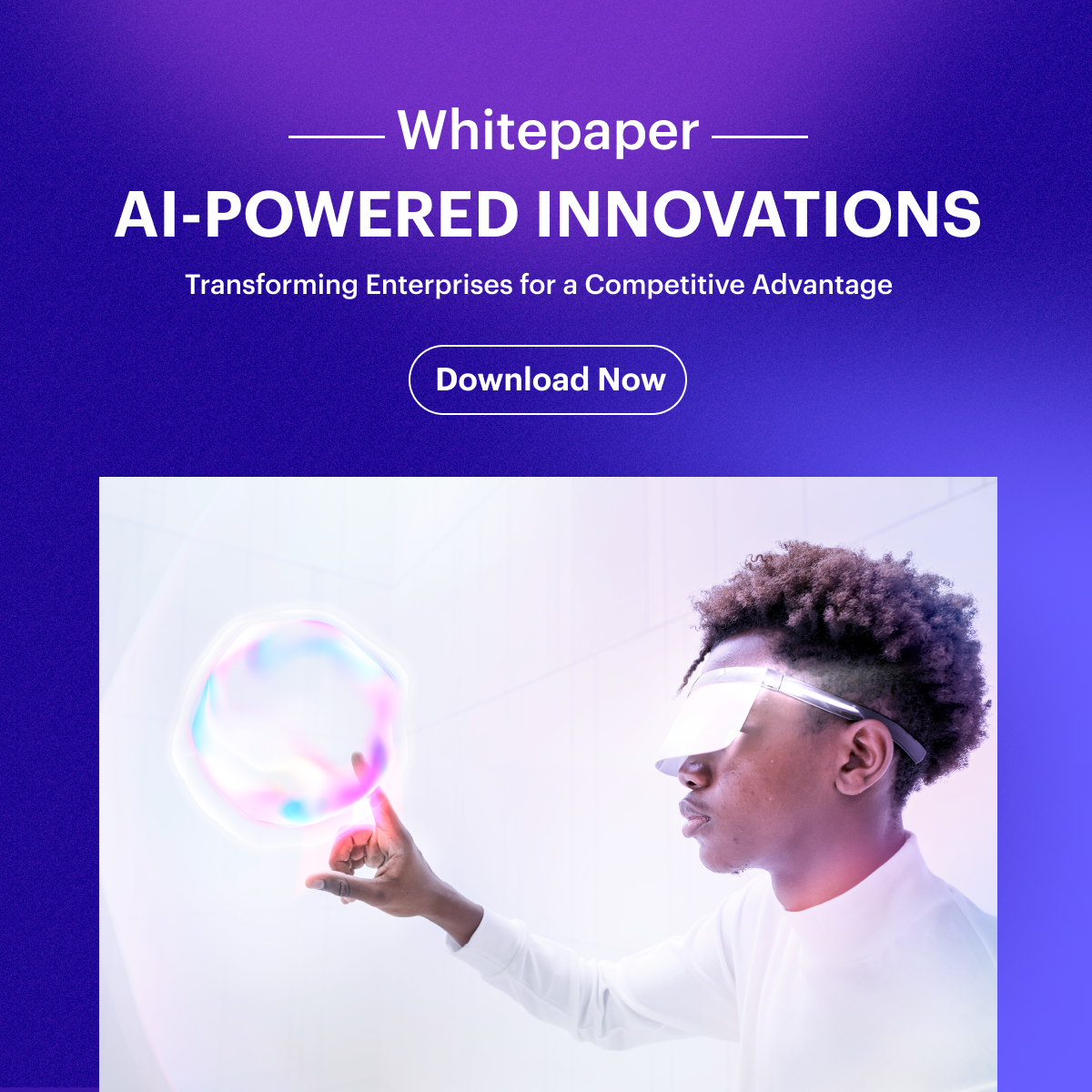Cloud
The Power of Hybrid Computing: Singe-faceted Effectiveness and Creativity
 Updated 17 Dec 2024
Updated 17 Dec 2024

With organizations relying more and more on technology to support various activities within organizations, hybrid computing has become rather valuable for cloud development services. Hybrid computing is the result of integrating cloud computing with on-premises solutions and provides the level of flexibility to run the companies that are required now. Market trends show that the hybrid cloud market will rise to $173.33 billion by the end of the year 2025 due to increasing demands for businesses needing IT facilities’ flexibility and security.
In this blog, you will learn about the potential of hybrid computing, the benefits that come under this category, and how it will change the course of business computing shortly. Also, you will learn from examples of the application of hybrid computing in practice and how companies can successfully use it in the future. Finally, we’ll feature Q3 Technologies as a leading provider of hybrid computing solutions and show you how they can assist you in this ever-shifting environment.
What is Hybrid Computing?
Hybrid computing can be defined as the combination of IT infrastructures, including the on-premises and the cloud infrastructure. This approach enables organisations to adopt the stability and commanding leverage offered by conventional data center-based systems together with the convenience, expansibility, and cost-effective nature of cloud computing architectures.
Hybrid computing mode allows firms to keep activities and applications that require propriety data on their local base while directing other non-critical operations and services to the cloud. This, in turn, means that organizations can grow their operations flexibly and become leaner, faster at delivering services and critically compliant with security and regulatory policies.
Read Our Case Study: Elevating Events with a Cloud-Powered Ticketing & Event Search Solution For a Global Leader in Digital Ticketing Services
Key Benefits of Hybrid Computing
The use of hybrid computing is a solution to many changes needed to support businesses in increasing efficiency and innovation. Below are the key advantages of adopting a hybrid computing model:
Enhanced Flexibility and Scalability
Most organizations opt for hybrid computing to achieve flexibility in their operations. Organizations can keep a major chunk of their important information within their company’s firewall while utilizing cloud development services for other tasks. This approach affords the business the flexibility of increasing or decreasing depending on the market forces, thus being ready for the busy season and slow season.
For instance, in busy periods when the workload increases the organization can draw upon cloud resources and balance the local systems and the hybrid cloud.
Cost Efficiency
Hybrid computing means that an organization can obtain the levels of computing as a service while requesting the cloud only when needed so that costs can be well controlled. Where traditional businesses would have had to invest a great deal to accommodate periods of high demand, they can easily switch to cloud resources. This pay-as-you-go model does not force the companies to incur costs of other technologies, hardware and IT staff to support the additional physical infrastructure.
Further, hybrid computing minimizes the risk of having to buy capital equipment and infrastructure for computation since the cloud can always supply the required power without capital investment.
Do you want to cut your expenses? Call Q3 Technologies now for expert software development services to help you cut costs for your business.
Improved Data Security and Compliance
The issue of data protection is yet a concern for enterprises, especially for those firms operating in stringent industries like the financial and healthcare sectors. Hybrid computing offers organizations a more secure approach by allowing them to store important information internally while continuing to take advantage of the cloud for other operations.
Through hybrid computing, it will be possible to pass strict compliance regulations such as GDPR or HIPAA while making sure that important data is under the physical control of the firm. On the other hand, Cloud can be deployed for other less critical workloads while the company’s core applications remain on-premises – a secure and compliant hybrid model.
Seamless Integration with Existing Systems
What hybrid computing does is give companies a way of connecting old and new systems with cloud solutions. But for most companies, going fully cloud is currently out of the equation as most have already invested a lot of resources in on-premises systems. This is a type of computing that has cut across the traditional and the cloud in a way that allows businesses to retain their physical infrastructure but at the same time tap into the creativity of the cloud.
This coexistence of erstwhile disparate systems in one solution makes it possible for companies to upgrade their IT structure methodically instead of going all out for an expensive cloud migration process.
Faster Innovation
With the use of the hybrid computing model, it becomes easy and faster to implement new changes within the business. This model allows companies to leverage cloud computing development tools like DevOps to prototype and rapidly pilot, then deploy new applications. That helps shorten the time to market for new products and services while keeping the basic systems stable.
Hybrid computing also helps manage and make use of intelligent technologies like artificial intelligence and machine learning to gather insights from big data. When [IT] intensive computational needs are offloaded to the cloud, and the results are returned to the businesses, they gain valuable insights without heavily taxing internal on-premises resources.
Interested in the fastest and most effective way to drive innovation in your business? Let Q3 Technologies assist you in the implementation of hybrid computing solutions in the development of quicker and more efficient processes.
Read Our Case Study: Seamless Operations and Efficiency with Overhead Conveyors Predictive Maintenance Solution for a Leading Energy Resources Company
Real-World Applications of Hybrid Computing
The best example is how hybrid computing is being used in various industries to tackle specific problems and improve results. Below are some real-world examples of how hybrid computing is making an impact:
Healthcare
In the HC industry, especially in the US, it is imperative that patient records are protected, and the solution should meet regulations such as HIPAA. Nevertheless, greater innovation is required of healthcare providers, especially where elements such as telemedicine and medical research are concerned. Hybrid computing enables protected storage of sensitive data, such as patient records onsite and the use of the cloud for other value-added services, such as telehealth and diagnostic analysis via artificial intelligence.
Financial Services
Compliance and security regulations in financial institutions are of high standard, so they need to have the most crucial systems located internally. However, hybrid computing enables bank and financial services companies to transfer uncontrolled activities, including CRM and marketing data analysis, to the cloud. This makes resources available and allows companies to introduce novel technology solutions quickly and directly touch on the consumer, for instance, mobile banking and anti-fraud solutions, among others.
Manufacturing
In production systems, manufacturing organizations use hybrid computing to connect IoT devices to production systems. Such data collected by IoT sensors can be analyzed in real-time using the cloud to control production lines and avoid cases of equipment breakdowns. While the basic applications are located in the cloud, data-critical applications such as supply chain and logistics management, as well as inventory control, are still run from onsite facilities to preserve data accuracy and the corporation’s compliance with high industry standards.
Retail
In retail, hybrid computing allows working with massive amounts of customers’ data, goods in stock, and sales performed at the same period. The POS and financial data, including inventory, can be stored on the on-premises system. However, the analytics and AI forecasting of customers’ demand can be done on the cloud system.
Conclusion
Hybrid computing is a perfect solution to scale businesses and provides more flexibility, security, and cost-effectiveness. Whether it would be in making real-time data possible, increasing organizational effectiveness or enhancing innovation rates, hybrid computing has the potential to change the world’s business enterprises.
For businesses that are focusing on surviving in the market without getting shifted down by technological advancement, it is not a luxury anymore to adopt hybrid computing. From business, healthcare, and banking and financial services to manufacturing and retail, hybrid computing is promising untold opportunities for business advancement and prosperity.
Through Q3 Technologies, your business can easily combine the structures of an organization core with the freedom of the cloud, thereby enhancing your organization’s ability to deliver more securely and faster. Contact us to assist you in finding your way in the hybrid computing environment and in developing solutions that meet your company’s requirements.



